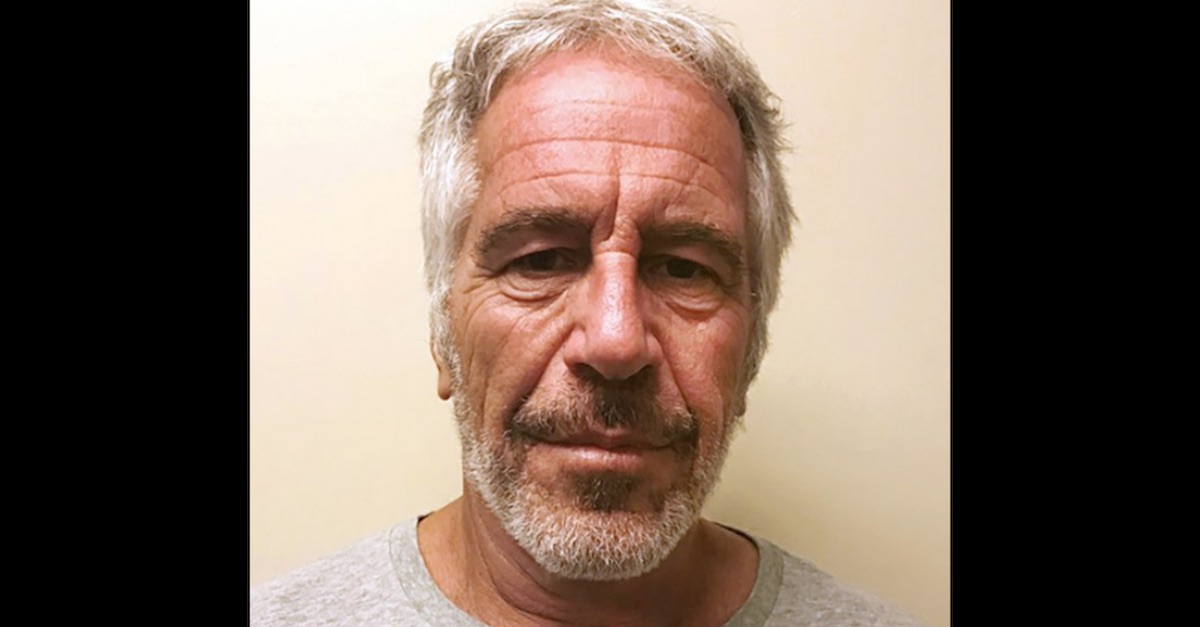
The Federal Bureau of Investigation (FBI) had dirt on Jeffrey Epstein more than a decade ago–but he was bailed out by federal prosecutors in Florida before authorities had the chance to act on that information.
According to ABC News, Epstein recruited a 14-year-old girl to give him massages in his Upper East Side mansion in 2002.
The woman claims that Epstein gradually came to sexually abuse her. The dead pedophile’s assistants allegedly scheduled several appointments with the girl–who accepted cash from the elite predator because her family was suffering through poverty.
The woman’s identity is currently being shrouded out of respect for privacy but she was identified in 2019 by the Southern District of New York (SDNY) in Epstein’s indictment as “Minor Victim-1.” Spencer Kuvin, an attorney who represented three Epstein victims, told ABC the FBI “could have unraveled the entire network from New York to Paris to New Mexico.”
“In or about 2002, Minor Victim-1 was recruited to engage in sex acts with Epstein and was repeatedly sexually abused by Epstein at the New York Residence over a period of years and was paid hundreds of dollars for each encounter,” the SDNY filing notes. “Epstein also encouraged and enticed Minor Victim-1 to recruit other girls to engage in paid sex acts, which she did. Epstein asked Minor Victim-1 how old she was, and Minor Victim-1 answered truthfully.”
The man whose child sex abuse empire was allegedly enjoyed by several of the world’s most popular and powerful men in art, politics and finance was, of course, pronounced dead by suicide in Aug. 2019 under extremely suspicious circumstances soon after being apprehended by New York authorities. Justice, it seems, had eluded his dozens of victims for the final time.
The woman, however, recently filed a lawsuit against Epstein’s estate which offers several details about her abuse and exploitation.
“[Her] experience with Epstein fit within what is now known to have been a common pattern for the abuser,” the lawsuit reads. “He would find vulnerable young girls who needed money and slowly test their boundaries—first asking them to remove their own clothes and massage him and then, over time, he would escalate his conduct, touching them in ways that would become more invasive, violent, and painful. As these children grew to rely financially on Epstein, he would only cause them more and more harm.”
The lawsuit continues on a personal note:
[She] never received a high school education. She suffers from post-traumatic stress disorder, anxiety, and depression. Her severe emotional injuries manifest in myriad ways: she often finds herself crying; she is unable to form healthy emotional relationships with men; she often cannot sleep through the night or fall asleep at all; she has panic attacks; and she is constantly afraid for her young daughter.
ABC News notes that the woman was scheduled to testify before a grand jury during the summer of 2008. As that date drew near, Epstein scheduled a hearing and entered his guilty plea—mysteriously securing unheard of preferential treatment from local law enforcement and federal authorities alike. The woman’s testimony was abruptly canceled.
FBI agents who had interviewed her earlier that year were left with legally useless information about an avowed and wealthy pedophile with friends in the highest places of several governments.
Marie Villafaña is the onetime Florida federal prosecutor who oversaw the U.S. Attorney’s Office initial investigation of Epstein–the same investigation that was ultimately shut down by then-U.S. Attorney for the Southern District of Florida Alex Acosta as he reacted to pressure from those close to the intelligence community to give the well-connected pedophile a sweetheart deal and slap on the wrist.
Her attorney, Ty Kelly, issued the following statement on her behalf:
Because the Department of Justice has declined to waive privilege over the Epstein matter, Ms. Villafaña is prohibited from discussing this matter and her opinions on the outcome in greater detail. If the Department were to waive that privilege, she believes it would provide a fuller and more accurate picture of how she handled this matter and how she advocated for victims at every turn.
The former prosecutor’s words, however, are likely to ring somewhat hollow in light of the known historical record.
As Law&Crime previously reported, Villafaña was reprimanded by a federal judge in 2007 for an “intentional and/or serious lapse in judgment’’ because she held back information in an another sex crimes case that also included an underage female victim.
[image via mugshot]